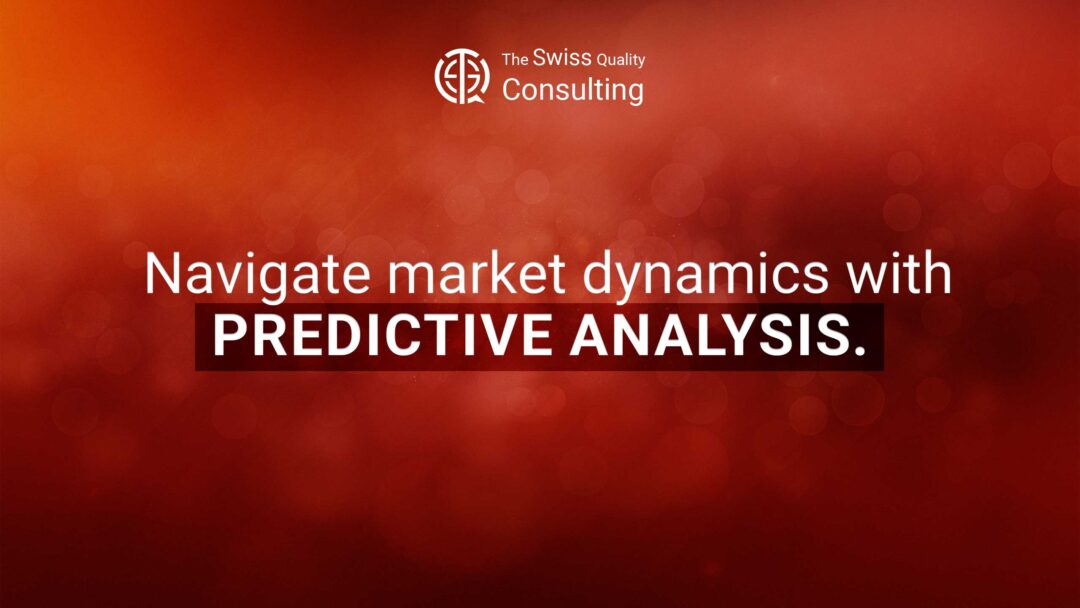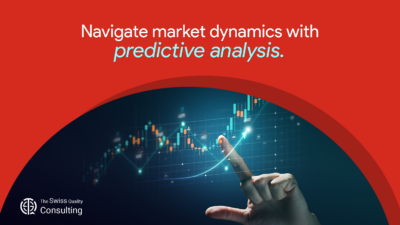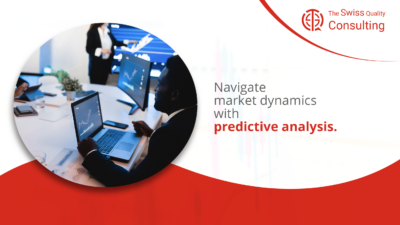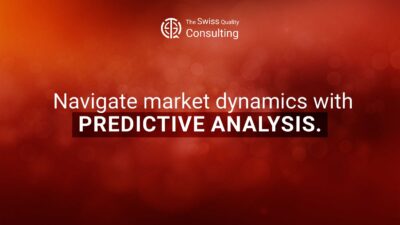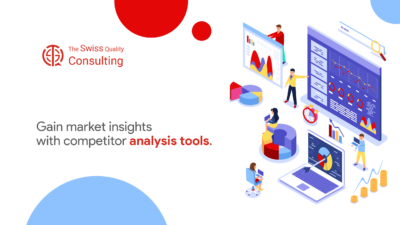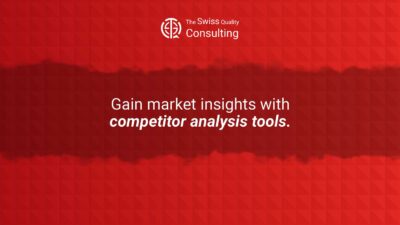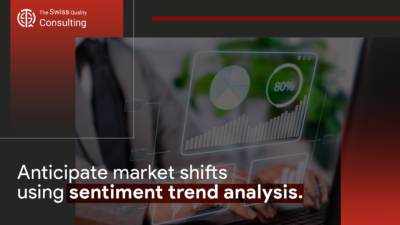Utilizing Predictive Analysis to Stay Ahead in Changing Markets
Introduction
In an ever-evolving business environment, navigating market dynamics with predictive analysis has become crucial for organizations seeking to stay ahead of trends and make data-driven decisions. This article aims to enlighten business executives, mid-level managers, and entrepreneurs on the significance of predictive analysis in understanding and responding to market changes effectively.
Navigating Market Dynamics with Predictive Analysis: A Strategic Approach for Informed Decision-Making
In today’s dynamic and data-driven business environment, predictive analysis has emerged as a transformative tool, empowering organizations to harness the power of historical data, statistical algorithms, and machine learning techniques to anticipate future trends, customer behaviors, and potential risks. This powerful analytical approach transcends mere data exploration and reporting; it delves into the realm of predictive modeling, enabling businesses to make informed decisions that are not merely reactive to past events but proactive in shaping the future.
At the heart of predictive analysis lies the concept of pattern recognition and correlation identification. By analyzing vast amounts of historical data, ranging from customer transactions to market trends and economic indicators, predictive models can uncover hidden patterns, correlations, and causal relationships that would otherwise remain obscured. These insights provide a glimpse into the future, allowing businesses to anticipate customer preferences, predict market movements, and identify potential risks and opportunities before they materialize.
The applications of predictive analysis extend across a wide spectrum of business functions, including:
Sales and Marketing: Predictive models can forecast customer demand, predict churn rates, and optimize targeted marketing campaigns for maximum impact.
Supply Chain Management: Predictive analytics can optimize inventory levels, forecast production needs, and anticipate potential disruptions in the supply chain.
Risk Management: Predictive models can identify potential risks, assess their likelihood and impact, and inform proactive risk mitigation strategies.
Financial Forecasting: Predictive analytics can predict revenue growth, forecast expenses, and assess the financial implications of strategic decisions.
Human Resources: Predictive models can predict employee engagement, identify potential turnover risks, and inform effective talent management strategies.
The benefits of embracing predictive analysis are manifold. It empowers organizations to:
Make data-driven decisions: Predictive models provide actionable insights that inform strategic decisions, enabling businesses to proactively adapt to changing market dynamics and customer preferences.
Optimize resource allocation: Predictive analytics can identify areas for cost savings, streamline operations, and optimize resource allocation, leading to increased efficiency and productivity.
Gain a competitive edge: Predictive models provide a forward-looking perspective, allowing businesses to anticipate market shifts, identify emerging opportunities, and stay ahead of the competition.
Mitigate risks and protect profits: Predictive insights can identify potential risks and vulnerabilities, enabling businesses to take proactive measures to mitigate risks and protect their financial stability.
In essence, predictive analysis is not merely a technological advancement; it is a strategic imperative for organizations seeking to thrive in today’s data-driven world. By harnessing the power of predictive models, businesses can gain a competitive edge, navigate complex market dynamics, and make informed decisions that drive sustainable growth and success.
Anticipating Future Market Trends
By harnessing the power of predictive analysis, businesses can gain insights into future market developments, allowing them to prepare and adapt their strategies accordingly.
Role in Change Management
Integrating predictive analysis is a critical component of change management. As market dynamics shift rapidly, businesses must be equipped to adapt their strategies quickly and efficiently.
Adapting to Evolving Business Landscapes
Predictive analysis provides businesses with the agility to respond to market changes, ensuring they remain competitive and resilient in the face of uncertainty.
Impact on Executive Coaching and Leadership
The successful implementation of predictive analysis for navigating market dynamics requires astute leadership. Executive coaching services are increasingly focusing on training leaders to understand and leverage data analytics for strategic decision-making.
Developing Data-Driven Leadership Skills
Through executive coaching, leaders are equipped with the skills to interpret predictive analytics and integrate these insights into business planning and strategy.
Effective Communication of Analytical Insights
Communicating the findings from predictive analysis effectively is crucial for organizational alignment and strategy execution. Leaders must be able to translate complex data into actionable insights for their teams.
Translating Data into Business Strategies
Effective communication ensures that teams understand and are aligned with the strategies developed from predictive analytics, enhancing collective efforts towards business goals.
Generative AI in Enhancing Predictive Analysis
Generative Artificial Intelligence (AI) is transforming predictive analysis by providing more accurate and sophisticated predictive models. AI can analyze larger datasets, uncover hidden patterns, and predict outcomes with greater precision.
Advancing Market Prediction with AI
Generative AI offers businesses the capability to advance their market prediction models, providing deeper insights and more reliable forecasts.
Conclusion
In conclusion, navigating market dynamics with predictive analysis is essential for businesses looking to gain a competitive edge in today’s fast-paced market. By leveraging predictive analytics, organizations can anticipate market changes, make informed decisions, and steer their business towards sustained success.
#PredictiveAnalysis, #MarketDynamics, #BusinessStrategy, #AIinBusiness, #DataDrivenDecisions

